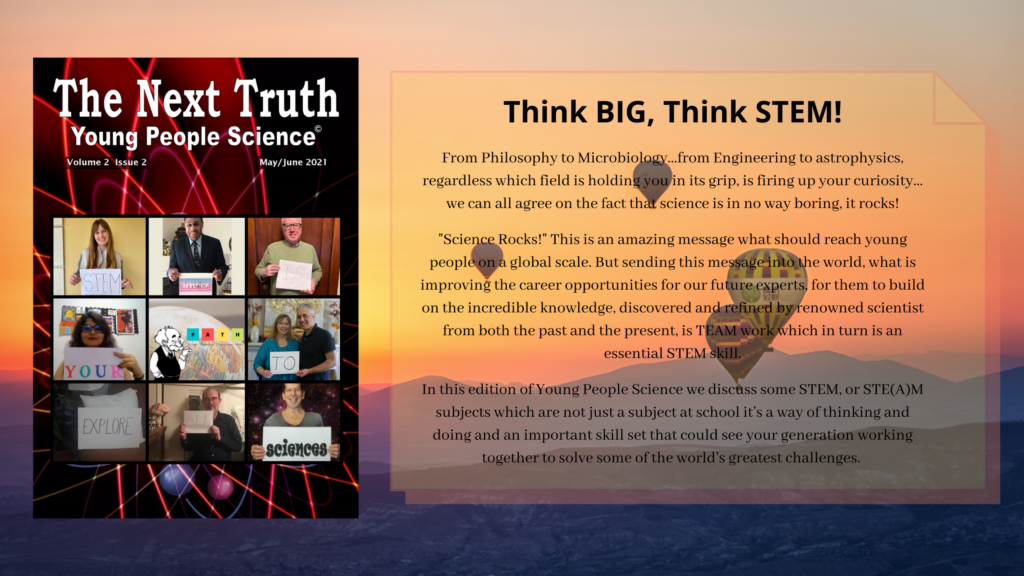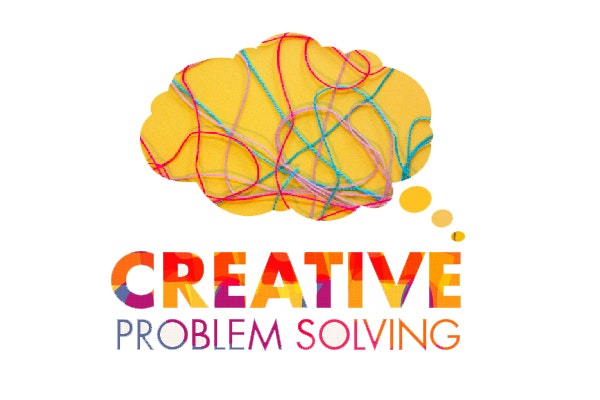We Are Made of Coded Qu-whatum Stuff?!
By Maria Anna van Driel
Have you ever had this experience? You are having a chat with someone and they are telling you something about a topic they are very interested in or, they know a huge amount about, and it seems that you are following along with ease. Then, out of the blue, you realize you kind of lost the thread of what they are saying. You are just standing there, lost in time, realizing that you have absolutely no clue what they are talking about.

I’m a science journalist, editor, magazine owner and radio host who is working, since 2014, with scientists and citizen scientists who are covering a myriad scientific areas. And so, I have been on both sides of this kind of interaction. I have both been the one explaining very complicated material to people and, I have been on the receiving end of lots of very intense scientific discussions.
And, every now and then, this kind of breakdown in communication happens. During these moments, I have noticed something interesting, which is that, when a people stopped understanding, they feel slightly guilty about not following the stuff that is fired at them. But, if you think about it, this is completely silly. It is the wrong way around because at that point in time, there is literally nothing you can do to understand it better.
No, it is not that people, who are on the receiving end of the conversation, are not able to look over the edge of a sandbox because they lack the educational background knowledge, it is because they are constantly tripping over the complex and technical terms that are so liberally strewn about during explaining scientific research.
Sure, I have experience many moments in where I had to interrupt a scientist because I could not follow him/her anymore. But I found that the only way to…um, well, ‘survive’ the complexity given was having the courage to politely stop the person who was explaining, say, “I’m sorry, I don’t understand what you are saying,” and then go back and start off from where I had lost the thread.
And, yes, it does take a bit of courage to do this because you are, sort of, admitting that you don’t know the subject matter.
But this all perfectly fine, in fact, my fears were completely unwarranted. Generally, people respect you if you care about knowing the right information and willing to understanding the topic properly. So, I am of the opinion that we should never feel bad about not knowing something and, we should never feel bad about asking questions. And, one of these questions is, “What is quantum physics?”
So, let’s briefly explore this amazing scientific field what is, among others, researching those wacky particles which are bouncy and wobbly at the same time.
Click here to read the full article via Medium.com

Extraterrestrials; Are They Just Figments of a Creepy Legend or is There Another Explanation?
An interview with long time MUFON board member, Tom Whitmore.
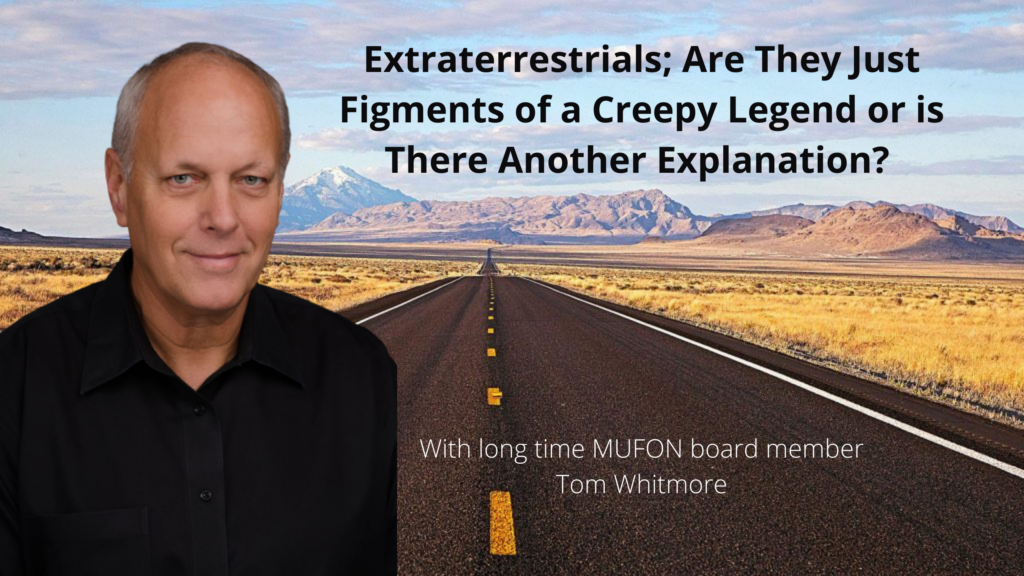
Extraterrestrials… are they just figments of a creepy legend that speaks of human-shaped life forms having ill intentions toward us? Or is there another explanation?
UFO’s and those who are operating them have been reported by witnesses throughout time as small but terrifying grey’s, having huge black eyes and standing alongside a person’s bed at night while communicating through an odd form of telepathy.
What is the truth behind the UFO mystery? How advanced is their technology compared to ours? Where do they come from and… why do aliens abduct us?
I am your host Maria Anna van Driel and you’re listening to “The Next Truth; Where Science and Myth Meet” This week I am exploring the wide and mysterious world of unexplained aerial phenomena together with Long time MUFON board member Tom Whitmore.
Tom has been fascinated by military and intelligence agencies’ interactions with the UFO public. He has undertaken a research study of the history of the MJ12 affair, and … intends to eventually publish his findings.
[Top]Should We Take a Second Look at How We Teach These Days? (part I of III)

In my article “The Very First Letter of STEM is Science” I wrote, ‘Nowadays, young people have free access to a high speed electronically world we have become to know as ‘The Internet’. Wikipedia in this is a frequently visited site for students to upgrade their already possessing knowledge.’
In that same article, I asked the question of how reliable the written knowledge we can find on the internet, truly is. In this, I was aiming my thoughts on how far we are allowed of applying a form of creativity and critical thinking to this avalanche of information. Are we allowed to take this information, discuss it, break the taboo and convert it all into a new evolution in science?
l learned a sad fact and it is bothering me immensely!
As the owner and founder of the scientific magazine “The Next Truth” and an investigative science journalist, I got the opportunity to work in the midst of the smartest and most dedicated people I have ever met in my life but, that was not the only thing I saw. Although these people have brilliant minds, I saw that some of these people are stuck in their own narrow-minded thinking and processes as well. This shows a result in a large number of our scientists and aspiring students writing down their best ideas and novel theories in their spare time and then hide it away in the most remote drawers they can find in their office because it is said to be too “farfetched”, labeled as “Pseudo-science” or “hypothetical nonsense”.
Why? Because the narrow thinking majority is so used to the framework of accepted science or, the looks of the diversity with robotic devices and the advanced and complicated task they can perform these days, they have forgotten that these incredible, sometimes ‘life-like devices have, like with everything in life, an origin.
Click here to read the full article published on the website of CoderZ
[Top]Science is Boring, Creativity is Stupid!…uh-whaaauh? (part I)
The brain is a Wi-Fi system for ideas.
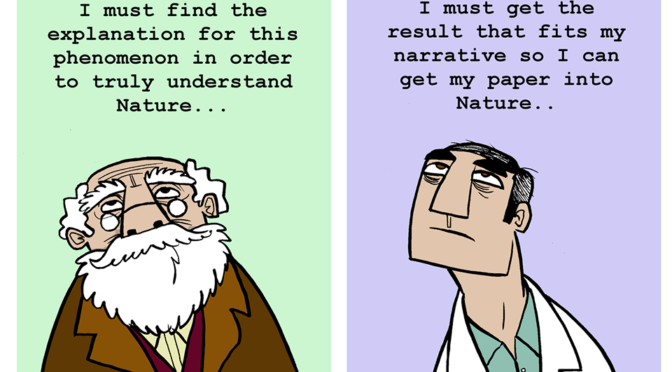
Let’s briefly discuss an issue most pressing and urgent and that is the so-called open science movement which is vile and will inevitably lead to a more educated nation, country and world. I know it is a horrible thing!
What is this open science movement you ask. Allow me to explain… it is a movement happening within the science community what is aiming its arrows on making data resources and information freely available to anyone who can read. But not only that, it is a movement wherein researchers are encouraged to make their data publicly available to young people and other researchers. What?! Why would anyone want to do that?
It also means full transparency as you are reporting your results which means that if you began with one hypothesis and suddenly found that it was not supported but instead found another hypothesis that was supported, you are supposed to tell people that your first hypothesis failed. Can you believe it? What has the world come to?
Okay, okay, enough silly sarcasm. But let’s be honest, too many scientists, mentors, are still doing their work in ‘tunnels’ so to speak. But by becoming more transparent – open it up for everybody to read – young people can see what you as a scientist are doing and which awe-inspiring theories and thoughts you have what they can apply to their upcoming thesis’s.
Using an open access journal also means that young people can both learn from you and respond to the scientific research published what in turn is keeping their fiery curiosity alive and can even accelerate a scientific evolution.
Is that not the main reason why you became a professor, or mentor, in the first place…to teach?
Read the full article via the website of Medium.com
[Top]“I had 6 wonderful years at Indiana University doing research as a graduate student, and I didn’t want to graduate.”
By Maria Anna van Driel, www.medium.com
Can’t you keep your eyes off those twinkling stars that shine so brightly in the night sky? Are you that glued to your telescope that they have to surgically remove you from it? If so, then the astronomy bug has bite you and directed you towards a scientific career in astronomy.
“Children are natural explorers”, Dr. Kafka explains in an interview with The Next Truth. They naturally follow the scientific method of theorizing, experimenting, revising their theories and, experimenting again and come up with a conclusion. Being an explorer seems to be part of who we naturally are.”

So, do you like to build things? Make things work? Write computer programs? Solve equations? “Boldly go where no-one has gone before”?
Well, there are astronomers who do all different things like these while asking the questions, ‘what are the building blocks?’, ‘what are the processes?’ and “what is our place in the universe?” Where do you want to look next?
Read the full article on the website of Medium.com
[Top]Women in Astronomy: Where We’ve Been and Where We’re Going!
An interview with Executive Officer & CEO at AAVSO and Astronomer, Dr. Stella Kafka.
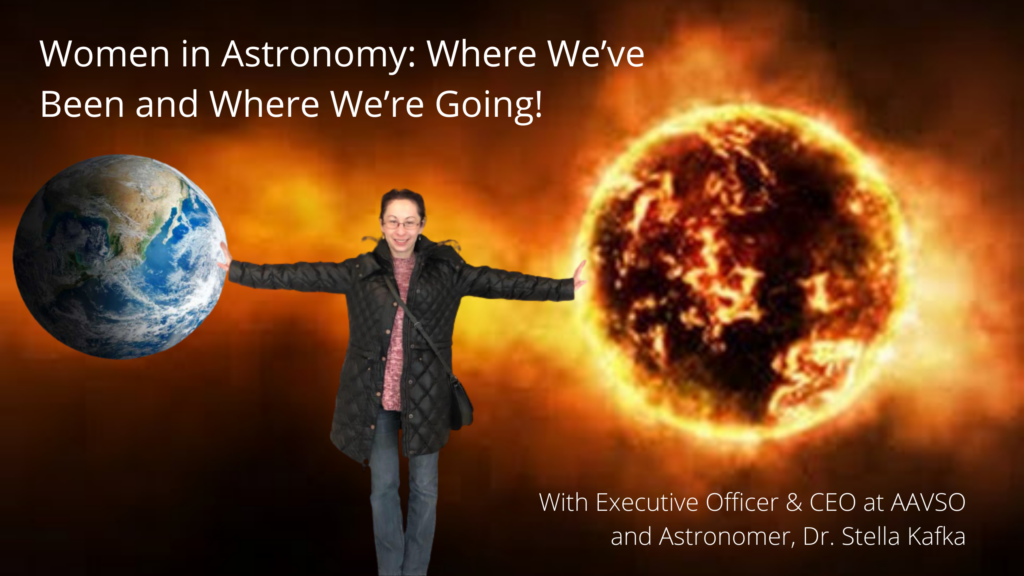
Can’t you keep your eyes off those twinkling stars that shine so brightly in the night sky? Have you read all those books that take you on an incredibly and cool journey through the universe?
Does your bedroom look like a direct copy of our cosmic freezer and, are you that glued to your telescope that they have to surgically remove you from it?
If so, then you were most likely born to have a scientific career in astronomy.
Astronomy, needless to say that this is the scientific study of celestial objects such as stars, planets, comets, and galaxies and, phenomena that originate outside the Earth’s atmosphere such as the cosmic background radiation.
Historically, astronomy has included disciplines as diverse as astrometry, celestial navigation, observational astronomy, the making of calendars, and even, at one time, astrology. But, did you know that, since the 20th century, the field of professional astronomy has split into observational and theoretical branches?
I am your host Maria Anna van Driel and you’re listening to “The Next Truth; Where Science and Myth Meet”. This week I am speaking with Executive Officer & CEO at AAVSO, STEM promoter and Astronomer, Dr. Stella Kafka, and discus with her the fascinating science of Astronomy and, the importance and influence of female scientists.
[Top]What Turns Your Hamburger Into…Poop?!
An interview with practicing Gastroenterologist and Hepatologist, Dr. Sameer Islam who was standing outside of his practice at the moment The Next Truth interviewed him.
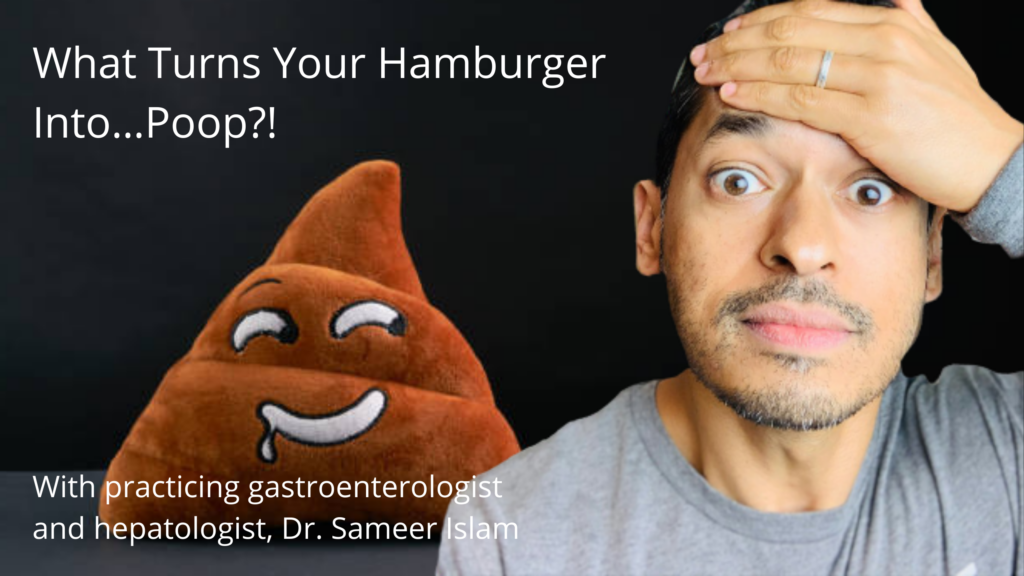
Ridiculous as it might sound to some of you but, ‘poop’ has a history too. No, not this brown smelly stuff that you find after visiting the bathroom but the word itself.
According to Eric Partridge in his excellent book of word origins (Origins: A Short Etymological Dictionary of Modern English), “poop” comes from the Middle English word “poupen” or “popen”, and it originally meant “fart.” The word was based on the sound of a fart.
But what is it that makes us poop and fart this often? Why does it sometimes smell that bad and others times it seems as if it does not have a smell at all? And, how does the steak on our plate or the drinks we drink, being turned into this brown smelly stuff we call ‘poop’?
By the way, did you know that whale poop is used by microorganisms to photosynthesize and produce oxygen?
I am your host Maria Anna van Driel and you’re listening to “The Next Truth; Where Science and Myth Meet” and this week I am speaking with practicing gastroenterologist and hepatologist, Dr. Sameer Islam and take with him an astonishing journey through the sewers of the human body, our intestinal system. And see if we can answer this question, which valuable information does our poop hold about our health?
[Top]Should We Take a Second Look at How We Teach These Days?
With Microsoft Certified Trainer, Dr. Keith McNally
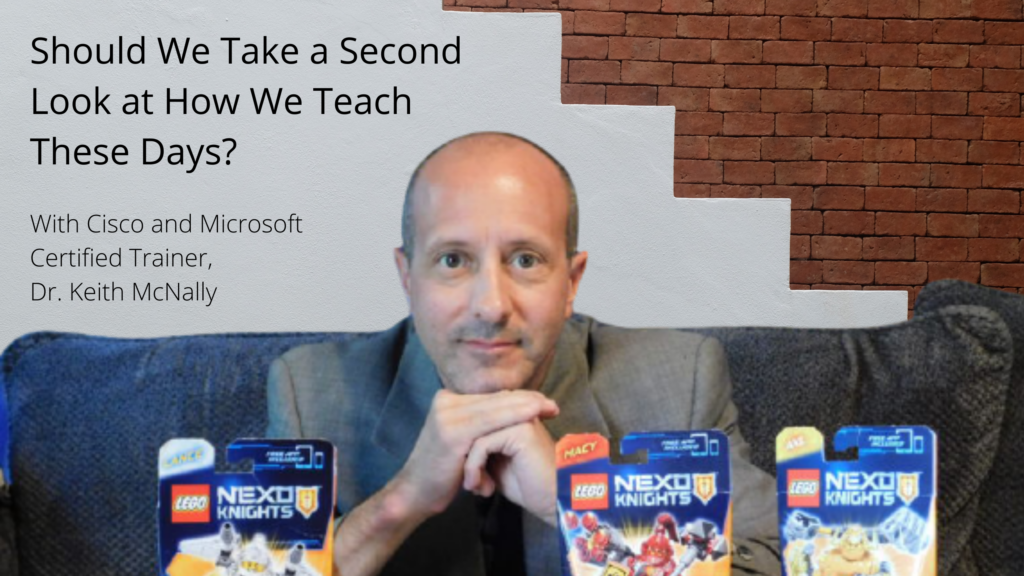
“The earliest roots of science can be traced to Ancient Egypt and Mesopotamia in around 3000 to 1200 BCE. Their contributions to mathematics, astronomy, and medicine entered and shaped Greek natural philosophy of classical antiquity, whereby formal attempts were made to provide explanations of events in the physical world based on natural causes.”
Nowadays, young people have a free access to a high speed electronically world we have become to know as ‘The Internet’. Wikipedia in this, is a frequently visited site for students to upgrade their already possessing knowledge.
But how reliable is the written knowledge we can find on the internet? I mean, are we in the position of adding a form of creative an critical thinking to this avalanche of information? Are we allowed to take this information, discuss it , break the taboo and convert it all into a new evolution in science?
I am your host Maria Anna van Driel and you’re listening to “The Next Truth; Where Science and Myth Meet”. This week I am speaking with Dr. Keith McNally who has created a project-based learning environments in college classrooms for the past dozen years.
“Young People Science” May/June 2021 – Out Now!
TNT-Young-People-Science-May-June-2021Scroll your mouse/cursor over the cover with the scientists and click (at the bottom of the cover) the box with the little arrows. This way you can read this month’s edition of your scientific magazine “Young People Science”.
Or, click here to download the interactive PDF via MagCloud.
From Philosophy to Microbiology…from Engineering to astrophysics, regardless which field is holding you in its grip, is firing up your curiosity… we can all agree on the fact that science is in no way boring, it rocks!
“Science Rocks!” This is an amazing message what should reach young people on a global scale. But sending this message into the world, what is improving the career opportunities for our future experts, for them to build on the incredible knowledge, discovered and refined by renowned scientist from both the past and the present, is TEAM work which in turn is an essential STEM skill.
In this edition of Young People Science we discuss some STEM, or STE(A)M subjects which are not just a subject at school it’s a way of thinking and doing and an important skill set that could see your generation working together to solve some of the world’s greatest challenges.
For print-on-demand and the interactive digital issues of The Next Truth magazines visit: https://www.magcloud.com/browse/magazine/1512517
